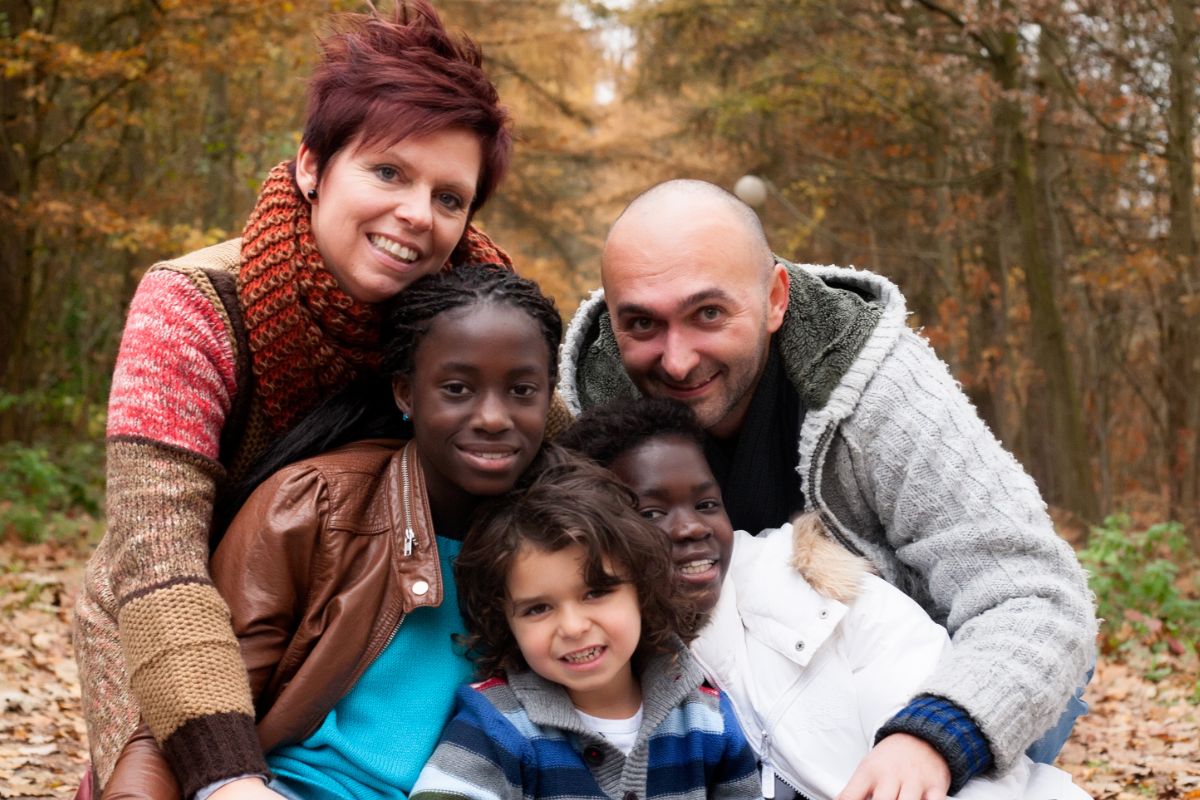Although we might typically think of adoption between an adult and a child, adult adoption is a legal proceeding that many families choose. Adult adoption occurs when the adopted party is over 18 and able to consent to the process.

For many families, adult adoption is a chance to formalize a relationship between a parent figure and a person that they have helped care for.
Foster families and stepparents often choose adult adoption to recognize an important bond in their life.
In this guide, we’ll provide an overview of adult adoption, including why it occurs, the basic steps to adopting an adult, and why applications are rejected.
Can You Adopt An Adult In The US?
An adult adoption occurs when an adoptee is 18 or older (see also “Can You Adopt Someone Older Than You?“). Adult adoption is legal in the US, and it requires the consent of both the person being adopted and the person adopting.
When an adult is adopted, they are issued a new birth certificate and the adoption record is sealed. Any legal ties to biological parents will be cut, as will the legal relationship to custodial parents.
The adoptee can also choose to change their family name.
Why Do People Choose Adult Adoption?
Adopting grants a person a formal, legal relationship with another person they care about. Providing both parties’ consent, adult adoption can be a relatively quick process. So, why might you choose adult adoption?
Many people choose adult adoption for financial reasons. Adopting an adult often makes it easier for the parent figure to establish legal inheritance rights.
The other common reason behind adult adoption is to formally recognize a parent/child relationship that already exists. For example, a family that fostered a child under 18 can now adopt them as an adult.
Stepparents with a close relationship with their stepchild might choose adult adoption.
Adult adoption can also formalize a biological relationship. A child who grew up in the care system might choose adult adoption after reconnecting with their biological family.
Similarly, a father who was unaware they had a child might seek adult adoption as an acknowledgment of the new relationship.
Some will choose adult adoption to care for a loved one with a diminishing physical or mental capacity. It’s important to note that adult adoption doesn’t confer the same legal, financial, and health responsibilities as legal guardianship.
The Procedure For Adult Adoption

The guidelines for adult adoption vary from state to state, with some states allowing for a simple agreement, and others expecting certain requirements to be met.
If you are interested in adult adoption, make sure you understand your state laws.
With that said, there are some basic steps you can expect to follow for adult adoption. The local courthouse can provide you with the forms you need to complete to start the process.
It might be necessary to engage a lawyer, to help you tackle the forms.
If the reason for adopting is the diminished mental or physical competency of an adult, you may need to complete additional forms.
The forms will need to be completed in the presence of a notary and then submitted to the correct governing body. You will receive a date to appear in front of Family Court. A judge will assess the case and decide if the adoption should go ahead.
They will consider both the legal requirements and the needs of the person being adopted.
What Can Prevent Adult Adoption?
Adult adoption requests can be refused by the family judge for a number of reasons, and some states have more restricted requirements than others. Below are some reasons why an adult adoption may be rejected:
- Some states, such as Alabama, only allow adult adoption for those with a mental or physical disability.
- Some states have a minimum age difference requirement. The adopter must be so many years older than the adoptee.
- A preexisting sexual relationship can be grounds to reject an adult adoption. If the adoption goes ahead, it can violate incest laws.
- The adoptee may have been expected to reside with the adopter as a child (for example, as a stepchild or foster child).
- If the adopter is separated but legally married, the spouse will often be asked to consent to the adoption.
- If the adoptee is legally married, their spouse may be required to consent to the adoption.
- Any suspicion of fraud can halt the adoption process. If the adopted party is seeking adult adoption for an improved inheritance, the person adopting will need to prove they are fully consenting.
Adult adoption had sometimes been the choice of LGBT+ couples looking to formalize inheritance and guardianship when same-sex marriage was illegal (see also “Can Same Sex Couples Adopt?“).
His method is less common nowadays, and some states have restricted this arrangement.
Is Adult Adoption The Same As Legal Guardianship?
Although the two terms might seem similar, there are many differences between legal guardianship and adult adoption.
With adult adoption, the adopter assumes the same legal responsibility they would have over a biological adult child. As the adoptee is a legal adult, they will have the financial and legal responsibilities of a legal adult.
Legal guardianship is granted when an adult is unable to care for themselves. The legal guardian is expected to safeguard the person who is placed in their care.
As well as providing physical and emotional support, a legal guardian will be expected to make certain financial and legal decisions.
Legal guardianship comes with much greater legal responsibility than adult adoption. While adult adoption is often a personal choice with emotional motivation, legal guardianship is an important safeguard (see also “Can A Single Person Adopt?“).
Final Thoughts
Adult adoption is often used to formalize a pre-existing relationship between two people. Some stepparents and foster parents choose adult adoption when the adopted party is able to give their consent.
It has certain legal benefits, and it ensures an important relationship is recognized.
There are also financial benefits to adult adoption. Adopting an adult makes it easier for the person to leave an inheritance to a loved one.
Adult adoption is governed at a state level, not a federal level. If you are interested in adult adoption, it’s important to carefully research the rules and regulations for your state.
- 10 Best States For Families - March 6, 2023
- Can A White Couple Adopt A Black Baby? - March 1, 2023
- Best DNA Tests For Adoptees - February 28, 2023










